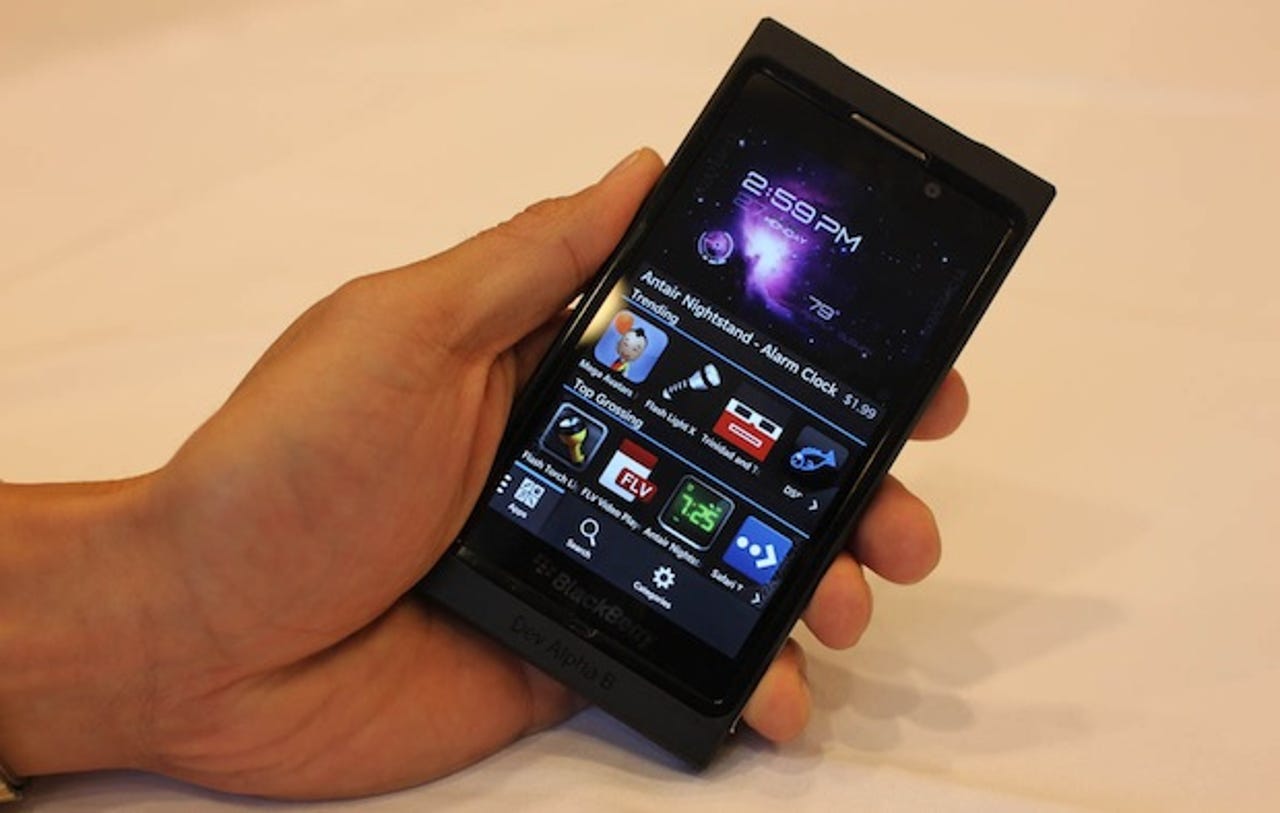U.S. agency gives BlackBerry 10 a chance after iPhone coup

A U.S. federal agency has reneged on its plans to ditch the BlackBerry in favor of iPhones -- at least, to a degree -- after it announced that it would give Research in Motion's next-generation BlackBerry 10 platform a chance.

The U.S. Immigration and Customs Enforcement (ICE) agency recently said it would pull the plug on its contract with the beleaguered BlackBerry maker in favor of Apple's iPhone, due to its back-end management features and IT policy restrictions.
Outlining the plans in its so-called "solicitation" document, ICE said it was looking favorably at iPhones for its 17,600 employees, amounting to a deal with around $2.1 million to the humble American taxpayer.
But now, the U.S. immigration agency will early next year trial the new range of BlackBerry 10 handsets after they go on sale on January 30, along with the next-generation back-end secure messaging service, BlackBerry Enterprise Server 10 (BES 10), a spokesperson for RIM told the Reuters news agency.
It comes at a delicate time when RIM is preparing its enterprise customers for the next wave of BlackBerry smartphones amid financial troubles, after the firm failed to keep up with competition across the board.
"The iPhone services will allow these individuals to leverage reliable, mobile technology on a secure and manageable platform in furtherance of the agency's mission," the solicitation document read. A few weeks later, Barclays sent an industry-wide 'Bat-Signal' by buying around 8,500 iPads for its banking services.
Many other U.S. government agencies are reneging on their long-trusted BlackBerry programs to jump ship to Apple. The U.S. National Transportation Safety Board (NTSB) also said it would drop their contract with RIM in order to seek alternatives.
The NTSB's own solicitation document twisted in the already dug-in knife by claiming "performance issues with the Blackberry devices." The NTSB added that the agency "requires effective, reliable and stable communication capabilities to carry-out its primary investigative mission and to ensure employee safety in remote locations."
In November, the U.S. government awarded BlackBerry 10 crucial government certification to run the next-generation operating system and platform in a government setting. FIPS 140-2 certification is required for government use. While Apple's mobile platform received similar grading in the eyes of the U.K. government, the U.S. has yet to certify any mobile device outside the BlackBerry range.
RIM shares are at the highest they have been since May 1, more than seven months ago. Shares have been climbing on recent news that the BlackBerry 10 platform is looking better than first expected, following strong developer responses.
Having said that, looking at the wider picture over the past five years, it's clear to see that while RIM recovers from a massive slump in share price, the firm has certainly had its hay day -- at least, for now.
It should be said that, while at this stage it looks 'possible' rather than 'likely' that RIM could recover to pre-U.S. recession share levels in the coming year, RIM will have all but run out of options if BlackBerry 10 fails to take off.
(via Reuters)